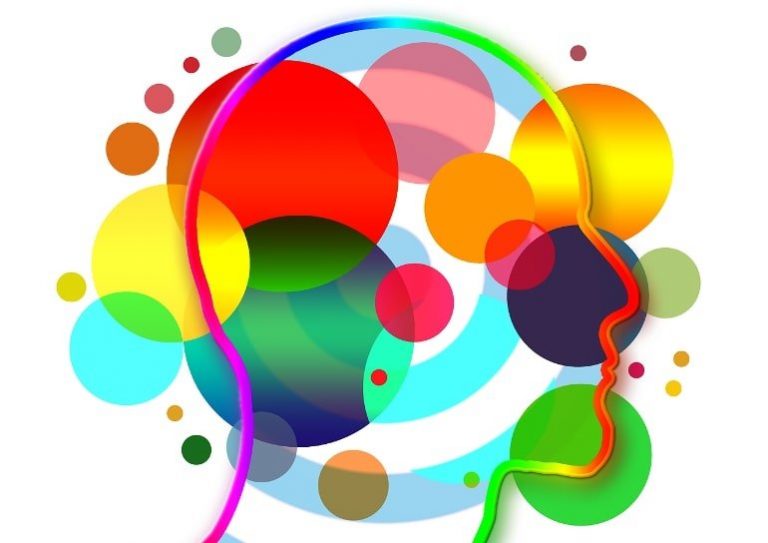Can drinking tea improve cognitive function and help prevent cognitive decline? – Neuroscience News
Summary: From aiding attention and warding off cognitive decline to improving immune system function, researchers are exploring the many health benefits of tea.
Source: Pollack Communications
Leading nutritional scientists from around the world gathered yesterday to present the latest evidence supporting tea’s role in promoting optimal health.
With new findings from the international scientific community constantly lending credibility to the healthy properties of tea, the symposium speakers provided a comprehensive update on recent research on the benefits of tea drinking on human health.
As the second most consumed beverage in the world after water, more than 159 million Americans drink tea every day.
“There is a growing body of research from around the world demonstrating that drinking tea can improve human health in several ways,” said symposium chair Jeffrey Blumberg, PhD, active professor emeritus at the Friedman School of Nutrition Science and Policy from Tufts University. .
“True teas – which include black, green, white, oolong and black – can make a significant contribution to promoting public health. The evidence presented at this symposium reveals results – ranging from suggestive to compelling – about the benefits of tea on cancer, cardiometabolic disease, cognitive performance and immune function.
Chemistry in your cup
Tea contains flavonoids, natural compounds that have antioxidant properties. The flavonoids in tea provide bioactive compounds that help neutralize free radicals that can damage elements in the body, such as genetic material and lipids, and contribute to chronic disease. Tea also contains L-theanine, an amino acid found primarily in tea.
Tea and immune function
“Tea can help support your immune system and increase your body’s resistance to disease,” says Dayong Wu, MD, PhD, Laboratory for Nutritional Immunology, USDA Jean Mayer Center for Research on Aging in Nutrition human at Tufts University.
“If you get sick, tea can help your body respond more effectively to illness by getting rid of infection and can also soften its incision when it occurs.”
In a comprehensive review of published data on this topic presented at the symposium, Wu concluded that green tea/catechins have been shown to help the host fight off a variety of pathogens by decreasing the ability of the pathogen to infect the host and aiding the host’s immune system. the system kicks in.
Green tea/catechins have also been shown to improve autoimmune disorders by promoting self-tolerance, suppressing autoantigen-induced inflammatory attacks, and enhancing tissue repair.
Tea and cognitive function
When it comes to cognitive function, it turns out that tea can provide significant benefits. “There is strong evidence that tea and its constituents appear to be beneficial under stressful conditions. The deepest cognitive domain tea appears to work on is attention and alertness,” says Louise Dye, PhD, professor of nutrition and behavior at the University of Leeds.
“With these effects on attention, tea is an optimal drink of choice during a time of high stress and burnout around the world.”
In his review of published research on this topic, Dye found that evidence from randomized controlled trials supports the conclusion that drinking tea can produce acute, short-term beneficial effects on attention as measured by objective tests such as than the change in attention test and on subjective alertness reports. Studies consistently show the beneficial effects of a high dose of L-theanine, combined with a lower dose of caffeine, on the performance of attention tasks.
These results indicate that the unique combination of caffeine and L-theanine found in tea can improve attention.
Tea and the prevention of cognitive decline
In the absence of effective drug treatments for dementia, prevention is essential. It is estimated that 40-50% of dementia cases could be prevented through changes in lifestyle factors.
In a review of published research on tea and cognitive decline, Jonathan Hodgson, PhD, professor at the Institute for Nutrition Research at Edith Cowan University, explains that “there is growing evidence that as little that 1 to 2 cups of tea a day could significantly reduce risk of vascular dementia and potentially Alzheimer’s disease.
Recent high-quality evidence from long-term prospective cohort studies indicating that higher intakes of tea – from as little as one cup per day and up to 5-6 per day – are associated with reduced risk of dementia. Data from these studies also reveal that moderate intakes of the flavonoids found in tea are associated with a reduced risk of cognitive decline.
Maximum tea benefits can be obtained from just 2-4 cups per day, with little additional benefit from higher intakes.
The results of these studies also suggest that the protection provided may be the strongest for protection against vascular dementia, one of the most common forms of dementia.
Tea and cancer prevention
See also

Looking at existing data on tea and cancer prevention, higher intakes of tea consumptions may reduce the risk of certain cancers. There is evidence that tea flavonoids may act via antioxidant, anti-angiogenesis and anti-inflammatory mechanisms, as well as altering the profile of the gut microbiota. Tea is a beverage rich in flavonoids, which are bioactive compounds with several anticarcinogenic properties in experimental studies. Suggestive evidence indicates that drinking tea may reduce the risk of cancer of the bile ducts, breast, endometrium, liver, and mouth.

“Although further research is needed to determine the exact dosage, the conclusion we can share is that higher intakes of tea consumption may reduce the risk of certain forms of cancer,” says researcher Raul Zamora-Ros, PhD. main unit. of Nutrition and Cancer at IDIBELL.
Tea and heart health
Cardiometabolic diseases, such as diabetes and heart disease, are the leading cause of death worldwide, and tea consumption may be inversely associated with adverse cardiometabolic outcomes, according to results from population studies.
Based on a wide and varied design of scientific research, 2 cups of unsweetened tea a day has the potential to mitigate the risk and progression of cardiometabolic disease in adults.
In an in-depth study on heart health and tea, research found that each cup of tea consumed daily was associated with an average risk of 1.5% lower all-cause mortality, 4% lower risk of disease-specific mortality cardiovascular disease (CVD), 2% lower risk of cardiovascular events and 4% lower risk of stroke.
“When you look at all the different biomarkers and mechanisms tea affects, this bountiful drink is one that consumers can easily add to enhance their diets and create a healthier, longer life for themselves,” says Taylor Wallace, PhD. , director and CEO. at the Think Healthy Group and a professor in the Department of Nutrition and Food Studies at George Mason University.
Tea and dietary advice
To support the growing evidence of tea as a health-promoting beverage, clearer recommendations are needed in current US dietary guidelines. “There may be other herbs and botanicals that may provide health benefits, but none of them are as systematically studied as Camellia sinensis – the real tea,” says Mario Feruzzi, PhD, Professor and Chief of the Developmental Nutrition Section in the Department of Pediatrics at the University of Arkansas for Medical Sciences.
“With real teas – white, green, black and oolong – you’re dealing with thousands of years of traditional use, 60 to 70 years of systematic study which over the last 15 to 20 years has intensified to the point where we have very definitive data.
Dietary advice will provide more specific and relevant guidance to consumers in the context of the diversity of tea and other foods containing flavonoids.
About this food and cognition research news
Author: Christina Decken
Source: Pollock Communications
Contact: Christina Decken – Pollock Communications
Picture: Image is in public domain
Original research: The results will be presented at the Sixth International Scientific Symposium on Tea and Human Health
#drinking #tea #improve #cognitive #function #prevent #cognitive #decline #Neuroscience #News






